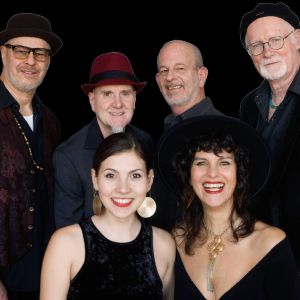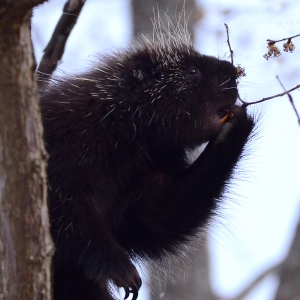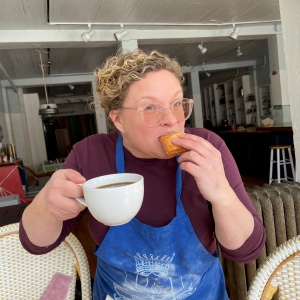Dipping into memories of Alice Parker: Sharing the late composer, conductor, and teacher’s go-to dip
| Published: 08-27-2024 2:18 PM |
Growing up spending summers down the road from composer, conductor, and teacher Alice Parker in Hawley, I didn’t know how lucky I was. I assumed everyone attended festive pot-luck parties at which grownups and children alike dressed in costume, ate fabulous food, recited poems, and made music together.
I knew that Alice was a composer and saw her playing the piano with gusto as we sang at those parties. Nevertheless, I didn’t appreciate her fully until I was a young adult going to graduate school in Knoxville, Tennessee.
My family informed me that Alice was going to be leading a Sing, a singing workshop, in Knoxville. I decided to attend, in part because I welcomed any opportunity to sing and in part because I was a little homesick and longed to see a familiar face from Massachusetts. Alice stood up in front of the group … and made magic.
In person, Alice was strong and smart and charming. When she was on a stage of any kind, her strength and charm were magnified exponentially. That evening in Tennessee, she took a roomful of separate voices, taught us to trust our musical instincts, and created a one-night-only vocal ensemble. I attended many of Alice’s Sings after that, and they always filled me with joy.
Ironically, one of the secrets to her success — I always thought of it as her superpower — was that she didn’t have a big singing voice. As she sang a phrase, her small but tuneful sound gently invited people to join in the music making, whether they thought of themselves as singers or not.
Even in her early to mid-90s, Alice wrote music and frequently traveled to conduct performances and lead workshops. In her nine decades as a composer (she started young and never quite retired!), she produced a large body of music, ranging from operas to arrangements of folk songs, hymns, and carols.
Just about everyone who has sung in an American chorus or choir has performed her music, and she received a multitude of awards and honorary degrees.
She developed the concept of the Sing in the 1970s, she told me several years ago. “I was asked to do a workshop at the opening of the Yale School of Music,” she recalled, “and I got the idea of looking at the hymnal with these people the way I had learned to look at it in the sense of doing arrangements — that is, I’m not looking at the theological value of the text; I’m looking at the poetic value.
Article continues after...
Yesterday's Most Read Articles
“I’m looking for tunes which are absolutely marvelous melodies and would lend themselves to setting in my vocabulary.
“And I was absolutely astounded at the result. People were just amazed because the singing was so beautiful, because I was focusing on how the melody itself sounds, not just whether we’re doing it accurately according to the way it’s written.
“They were just overcome with delight in how it sounded and then this sense of freedom in not being bound to do exactly what’s on the page.”
Alice believed that such opportunities to harmonize, literally and figuratively, are needed in contemporary America. “People don’t get together and just sing anymore,” she said.
“They used to, but now the television or the hi-fi is on, and certainly in the car there’s always music on, and even when people walk down the street they’ve got their [musical devices] on, and they don’t get together and just make music themselves for fun.
“And I think it’s a terrible lack in our society. So this is my way of trying to address it.”
For 20 years after my return to live in Hawley after school, Alice served as my accompanist as I sang American popular standards in a variety of locales. She obviously didn’t do this for the money. She was routinely paid much, much more than she ever made playing the piano for me. She did it for the sheer joy of making music … and to support me.
She was our neighborhood’s resident sage, grandmother figure, and peacemaker. I found the longevity of her career inspirational. Clearly, if one loves what one does, one can work pretty much forever. She exemplified her argument that singing is physically and emotionally good for human beings.
I used to eat with Alice a lot. She was my primary recipe tester and always willingly sampled my concoctions. And she was a font of good advice.
As a lackluster housekeeper, I enjoy this Alice-ism: “Every day I wake up and ask myself, ‘What can I do today that will make a difference a year from now?’ The answer is never, ‘Clean the house!’”
Alice died in December at the age of 98. This coming Sunday at 3 p.m., I’ll participate in Mohawk Trail Concerts’ memorial salute to Alice at the Charlemont Federated Church. I’ll sing a couple of songs we used to perform together and lead the audience through a spiritual.
I should probably fear taking Alice’s place as a song leader, even briefly. I’m comforted by her assurance, often voiced at her Sings, that every roomful of people singing creates its own unique sound. I won’t be Alice, but I’ll be me with a group of special people. And that will be enough.
For the reception after the concert, I hope to make Alice’s Grandma Dip. If you asked her to dinner, she probably brought along a bowl of this concoction. It was inexpensive to make so she served it to her grandchildren to allow the adults to eat fancier fare. Adults ate the dip, too, however. It sounds plain, but it’s full of flavor.
She pretty much winged the recipe, and I do, too. Adjust flavors to taste, and add anything you think might enhance the mixture. Fresh herbs out of the garden are of course preferred, especially at this time of year, but you could probably use dried ones in winter.
Ingredients:
2 cups cottage cheese (low fat is fine)
1 cup sour cream
salt and pepper to taste
seasoned salt, garlic salt, and/or seasoning mixes to taste (I often eschew the salt and pepper and toss in some Creole seasoning)
1/2 teaspoon paprika
1 pinch cayenne pepper
a handful of chives, finely chopped
other fresh green herbs to taste (I most recently used parsley, basil, and dill), finely chopped
Instructions:
Combine the cottage cheese and sour cream in the bowl of an electric mixer.
Beat in the remaining ingredients.
Place the dip in a bowl, and refrigerate for 2 hours before serving.
Serve with veggies, chips, sliced apples or crackers. This dip also tastes great atop a baked potato. Makes about 3 cups.
Tinky Weisblat is an award-winning cookbook author and singer known as the Diva of Deliciousness. Visit her website, TinkyCooks.com.









 Sounds Local: Cover bands abound at the Shea: Big Yellow Taxi will perform much of Joni Mitchell’s ‘Ladies of the Canyon’ this Saturday
Sounds Local: Cover bands abound at the Shea: Big Yellow Taxi will perform much of Joni Mitchell’s ‘Ladies of the Canyon’ this Saturday Speaking of Nature: A surprise in my maple tree: Porcupines just want to find something tasty to eat and be left alone
Speaking of Nature: A surprise in my maple tree: Porcupines just want to find something tasty to eat and be left alone Little pillows of golden goodness: The beignet recipe of your dreams, courtesy of our beloved local Wells Provisions
Little pillows of golden goodness: The beignet recipe of your dreams, courtesy of our beloved local Wells Provisions The cost of addiction: New novel draws on Valley backdrop to explore how substance use upends people’s lives
The cost of addiction: New novel draws on Valley backdrop to explore how substance use upends people’s lives
